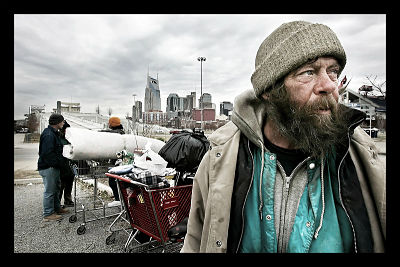Extreme Poverty in the United States

Throughout the world, extreme poverty rates have decreased significantly in the past years. According to the United Nations, “the number of extreme poor has dropped by 650 million in the last three decades.” Economic investment and poverty relief work in developing countries have played a significant part in reducing extreme poverty rates across the globe.
Although the majority of the people living in extreme poverty reside in developing nations, extreme poverty has yet to be eradicated from even the wealthiest of countries in the world. A recent study conducted by sociologists from Harvard and the University of Michigan have determined that extreme poverty in the United States still exists. Nearly 1.65 million households in the United States survive on less than $2 a day. This figure “accounted for 4.3% of all non-elderly households with children” in the United States.
The conditions of an American living in extreme poverty are certainly different than those of people who live in the developing world. Fortunately for the American impoverished, the United States has established a number of programs to assist people living under the poverty line. Food stamps, housing subsidies, and refundable tax credits are available to ensure that a person’s basic needs are met. The United States spent $9.6 billion on funding Temporary Assistance for Needy Families in 2011. This program provides temporary financial assistance to the impoverished, allowing them to pay for daily expenses when they are struggling to earn a sufficient income.
Although extreme poverty is concentrated in developing nations, extreme poverty is truly a global issue. Poverty reaches rich and poor countries alike, and the impoverished need aid no matter where they live. The difference between the impoverished living in a wealthy country and a developing one, however, is that wealthy countries have well-established safety nets for those living below the poverty line. In other parts of the world, this is not the case, making foreign assistance to these areas even more critical to ensure that the impoverished have their most basic human needs fulfilled.
– Jordan Kline
Sources: CNN, UNDP, Washington Post
Photo: HandsOn Blog
